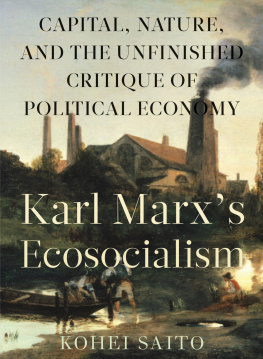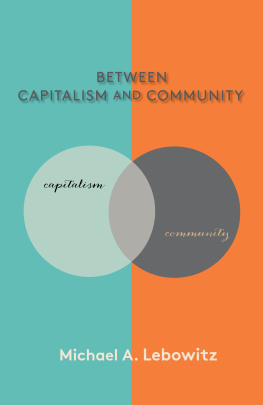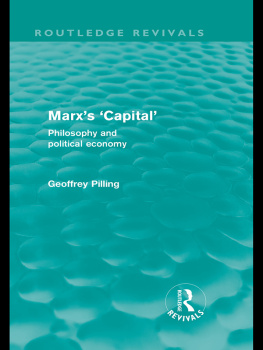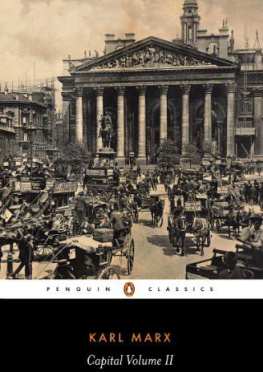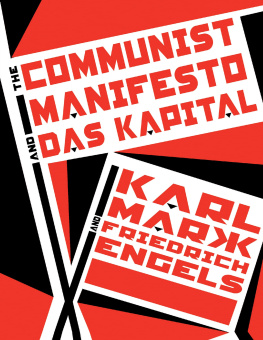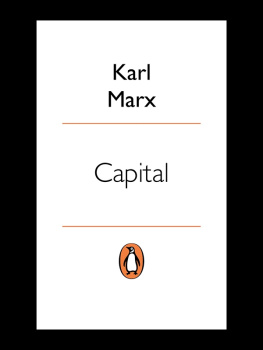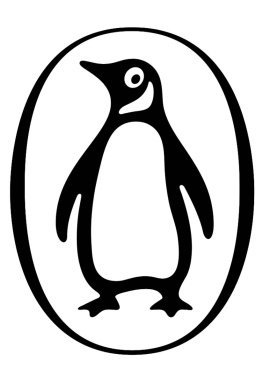PENGUIN BOOKS
UK | Canada | Ireland | Australia
New Zealand | India | South Africa
Penguin Books is part of the Penguin Random House group of companies whose addresses can be found at global.penguinrandomhouse.com.
This edition first published in Pelican Books 1976
Edition and notes copyright New Left Review, 1976
Introduction copyright Ernest Mandel, 1976
Translation copyright Ben Fowkes, 1976
Appendix translation copyright Rodney Livingstone, 1976
Cover: Detail from The Forge (A Modern Cyclops) (1875) by Adolph von Menzel, in the Nationalgalerie, Berlin (photo: BPK/SMPK, Berlin)
All rights reserved
ISBN: 978-0-141-92060-3
PENGUIN CLASSICS
CAPITAL
VOLUME 1
Karl Marx was born at Trier in 1818 of a German-Jewish family converted to Christianity. As a student in Bonn and Berlin he was influenced by Hegels dialectic, but he later reacted against idealist philosophy and began to develop his theory of historical materialism. He related the state of society to its economic foundations and mode of production, and recommended armed revolution on the part of the proletariat. In Paris in 1844 Marx met Friedrich Engels, with whom he formed a life-long partnership. Together they prepared the Manifesto of the Communist Party (1848) as a statement of the Communist Leagues policy. In 1848 Marx returned to Germany and took an active part in the unsuccessful democratic revolution. The following year he arrived in England as a refugee and lived in London until his death in 1883. Helped financially by Engels, Marx and his family nevertheless lived in great poverty. After years of research (mostly carried out in the British Museum), he published in 1867 the first volume of his great work, Capital. From 1864 to 1872 Marx played a leading role in the International Working Mens Association, and his last years saw the development of the first mass workers parties founded on avowedly Marxist principles. Besides the two posthumous volumes of Capital compiled by Engels, Karl Marxs other writings include The German Ideology, The Poverty of Philosophy, The 18th Brumaire of Louis Bonaparte, The Civil War in France, A Contribution to the Critique of Political Economy, Grundrisse: Foundations of the Critique of Political Economy and Theories of Surplus-Value.
Ernest Mandel was born in 1923. He was educated at the Free University of Brussels, where he was later Professor for many years, and the cole Pratique des Hautes tudes in Paris. He gained his Ph.D. from the Free University of Berlin. He was a Member of the Economic Studies Commission of FGTB (Belgian TUC) from 1954 to 1963 and was chosen for the annual Alfred Marshall Lectures by Cambridge University in 1978. His many books include The Formation of the Economic Thought of Karl Marx, Late Capitalism, The Long Waves of Capitalist Development, The Second Slump and The Marxist Theory of Bureaucracy. His influential pamphlet, An Introduction to Marxist Economics, sold over half a million copies and was translated into thirty languages. Ernest Mandel died in July 1995. In its obituary the Guardian described him as one of the most creative and independent-minded revolutionary Marxist thinkers of the post-war world.
Part One
COMMODITIES AND MONEY
Part Two
THE TRANSFORMATION OF MONEY INTO CAPITAL
Part Three
THE PRODUCTION OF ABSOLUTE SURPLUS-VALUE
Part Four
THE PRODUCTION OF RELATIVE SURPLUS-VALUE
Part Five
THE PRODUCTION OF ABSOLUTE AND RELATIVE SURPLUS-VALUE
Part Seven
THE PROCESS OF ACCUMULATION OF CAPITAL
The transformation of a sum of money into means of production and labour-power is the first phase of the movement undergone by the quantum of value which is going to function as capital. It takes place in the market, within the sphere of circulation. The second phase of the movement, the process of production, is complete as soon as the means of production have been converted into commodities whose value exceeds that of their component parts, and therefore contains the capital originally advanced plus a surplus-value. These commodities must then be thrown back into the sphere of circulation. They must be sold, their value must be realized in money, this money must be transformed once again into capital, and so on, again and again. This cycle, in which the same phases are continually gone through in succession, forms the circulation of capital.
The first condition of accumulation is that the capitalist must have contrived to sell his commodities, and to reconvert into capital the greater part of the money received from their sale. In the following pages, we shall assume that capital passes through its process of circulation in the normal way. The detailed analysis of the process will be found in Volume 2.
The capitalist who produces surplus-value, i.e. who extracts unpaid labour directly from the workers and fixes it in commodities, is admittedly the first appropriator of this surplus-value, but he is by no means its ultimate proprietor. He has to share it afterwards with capitalists who fulfil other functions in social production taken as a whole, with the owner of the land, and with yet other people. Surplus-value is therefore split up into various parts. Its fragments fall to various categories of person, and take on various mutually independent forms, such as profit, interest, gains made through trade, ground rent, etc. We shall be able to deal with these modified forms of surplus-value only in Volume 3.



